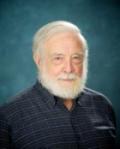W. Murray Wonham received the BEng degree in Engineering Physics from McGill University in 1956, and the PhD in Control Engineering from the University of Cambridge (UK) in 1961.
From 1961 to 1969 he was associated with several US research groups in control, including the Research Institute of Advanced Studies (RIAS), Brown University's Department of Applied Mathematics, and NASA's Electronics Research Center. Since 1970 he has been a faculty member in Systems Control, with the Department of Electrical and Computer Engineering of the University of Toronto. In 1996 he was appointed University Professor and in 2000 University Professor Emeritus.
Wonham's research interests have included stochastic control and filtering, geometric multivariable control, and discrete-event systems. He is the author of "Linear Multivariable Control: A Geometric Approach" (Springer-Verlag: 3rd edn 1985), co-author (with C. Ma) of "Nonblocking Supervisory Control of State Tree Structures" (Springer-Verlag: 2005), co-author (with Kai Cai) of “Supervisor Localization: A Top-Down Approach to Distributed Control of Discrete-Event Systems” (Springer-Verlag: 2015), and author of "Supervisory Control of Discrete-Event Systems" (www.control.utoronto.ca/~wonham), updated annually 1997-2015. He has published over 100 research articles in refereed journals and supervised over 60 Master's and PhD candidates.
Wonham's affiliations and awards include the following:
- Fellow of the Royal Society of Canada (FRSC)
- Life Fellow of the Institute of Electrical and Electronics Engineers (IEEE)
- Foreign Member of the (US) National Academy of Engineering (NAE)
- Honorary Professor, Beijing University of Aeronautics and Astronautics (BUAA)
- University Professor Emeritus, University of Toronto
- Advisory Editor, Discrete Event Dynamic Systems
- IEEE Control Systems Science and Engineering Award
- Brouwer Medallist of the Netherlands Mathematical Society

From Linear Systems to Discrete-Event Systems
In this talk we trace the development of a control theory of discrete-event
systems (DES), first proposed around 1983 and currently an active area of
research. The general concepts underlying modern control theories -
stability, optimality, controllability, and observability - had evolved
throughout the 1940s-'60s, notably in the approaches to linear system
synthesis pioneered by Wiener, Krasovskii, Kalman and others. Perhaps
surprisingly, the adaptation of these concepts to the seemingly quite
different setting appropriate to DES - automata and formal languages - proved
to be relatively straightforward, especially on the analogy of ideas from
geometric linear control (like subspace ordering) that had emerged in the
1960s and '70s.
Until fairly recently, the application of DES control theory to problems of
realistic industrial size has been inhibited by exponential state-space
explosion. We can now, however, report success in confronting exponentiality
through effective control architecture - for instance an adaptation of state
charts - combined with symbolic computing techniques involving binary or
integer decision diagrams. In these approaches it is often useful to identify
'natural' system structure as the point of departure, while a continuing
challenge is how to 'steer' a formal synthesis towards a common-sense simple
and comprehensible solution when the latter happens to exist. More generally,
the long term goal is to identify the "laws of control architecture."

